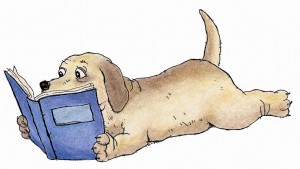 I just read a little local article about a fourth-grader (age 9~10) who challenged himself to read more books than he did the previous summer (100) and read almost 150 books this past summer.
I just read a little local article about a fourth-grader (age 9~10) who challenged himself to read more books than he did the previous summer (100) and read almost 150 books this past summer.
His favorites are fantasy and fiction, including Viking and Greek mythology.
Now, if I asked you what’s the difference between you and this kid, what would you say?
You probably think that I am accusing you with not reading enough, so you would reach for some excuses, and some self-justification, not enough time, blah blah blah.
Some of you would say that you read as much, but you read it on the Internet, emails and such.
But I think that the main difference between this fourth-grader and you is that he probably knows that what he reads is fiction, and you probably don’t.
I remember when my six years younger brother of mine was scared and jumpy from movies, and my parents had to assure him that it was a story, not the truth. But he never believed it, and he stayed on that level of gullibility, for the most part.
He, like me, is dyslexic, but he is the youngest child, and I am the middle child… I was an avid reader: he never read. I can read almost flawlessly in bed where both my head and the book are in a fixed position and there is no movement in the room. He never looked for a way or a position that would help him read in spite of his disability.
Which, pretty much means that he didn’t live through several lifetimes, vicariously, he has to satisfy himself with just one lifetime’s worth of knowledge and wisdom, and he has to make his own mistakes… which has cost him dearly.
He has been needing financial support for 14 years now… and I don’t think he is stupid, and he has real marketable skills… just no wisdom.
Everything he hears he treats it like the truth. He doesn’t know how to put up a filter of “it ain’t necessarily so.”
It is not too late for you. Of course if you read trashy romance novels, poor writing, predictable characters and predictable story, then you won’t develop a wisdom that will help you in life.
If you only read what’s on the internet, you probably can’t tell trash, untrue, from partially true, to truth. You don’t have enough knowledge, enough wisdom to do so.
But you can start reading nevertheless.
I read 30-90 minutes a day on average. More if and when I read fiction. That means that at 30 pages per hour rate, I read more than 10 thousand pages a year. That is more than one needs to know to get a master’s degree… and that is just one year.
You probably won’t be able to catch up, but that is not the goal to compare yourself with me. Compare yourself, like this little kid, with your previous accomplishment. Challenge yourself. And stay aware that most of what you read (99%) is fiction, even if it is dressed up as non-fiction or the truth.
Just like watching a historical movie with authentic costumes, you don’t believe that it’s real, don’t let style influence you. Read a lot, and then read more.
Eventually you’ll develop a knack for deciphering the truth.
PS: for those of you that live in your head: reading good fiction and fully experiencing (not imagining! not visualizing! experiencing!) as in an immersion movie, helps you live a little bit outside of your head. Being present to the story is not a mind-thing. Great tool…
Read the original article: How to develop the wisdom you need to be able to tell truth from fiction, truth from a lie?